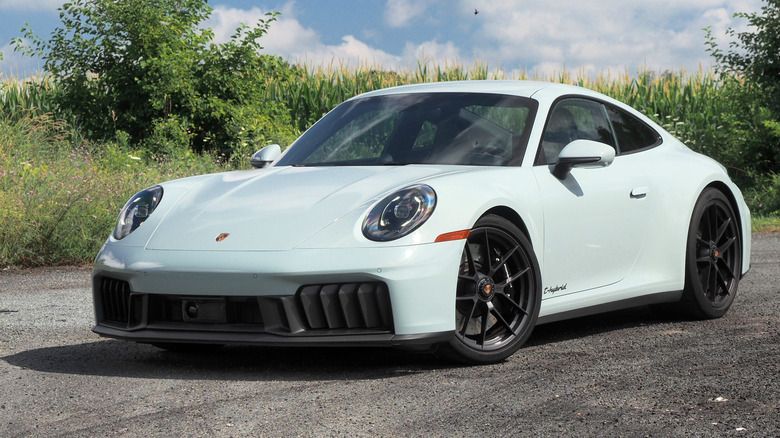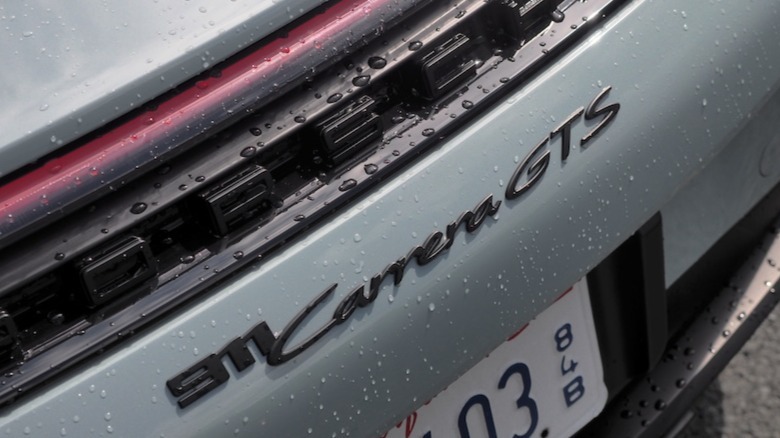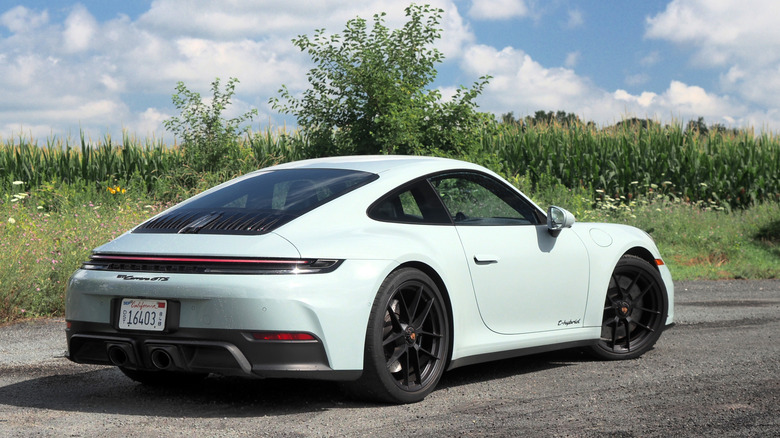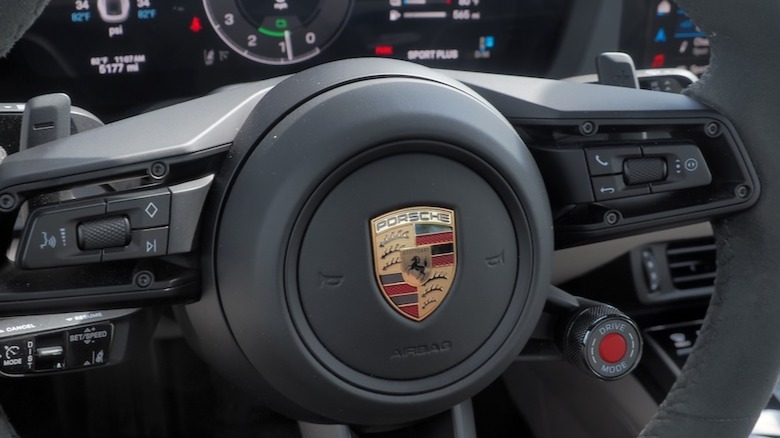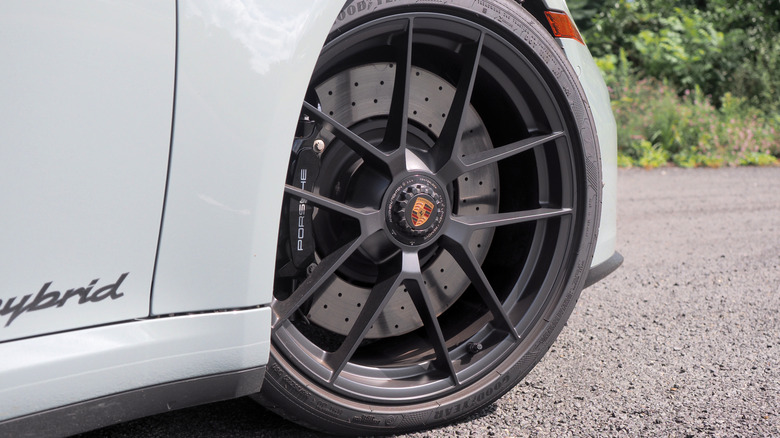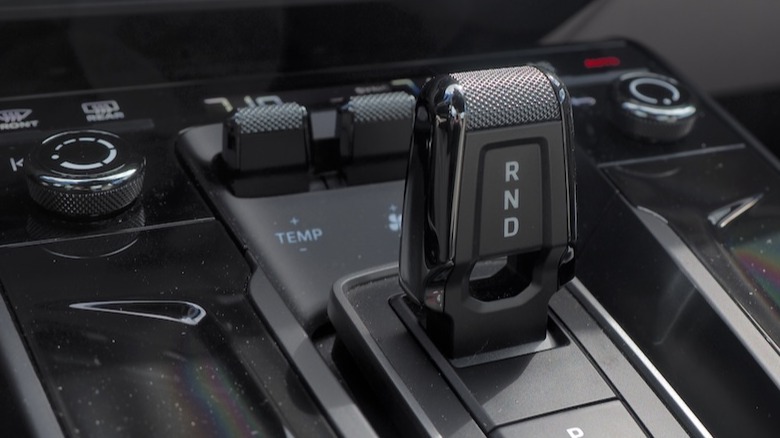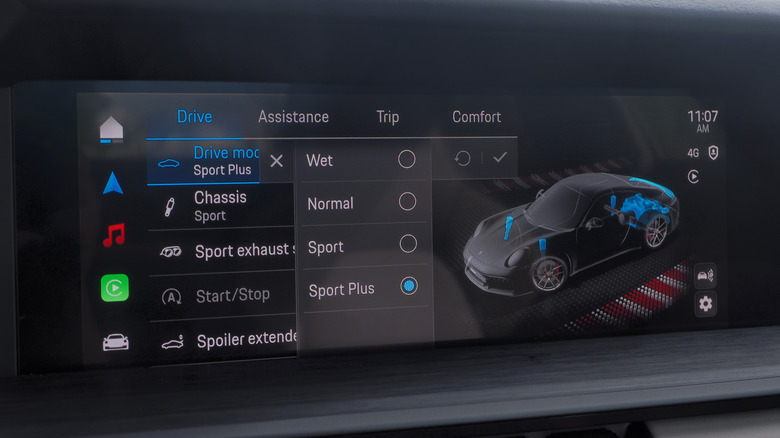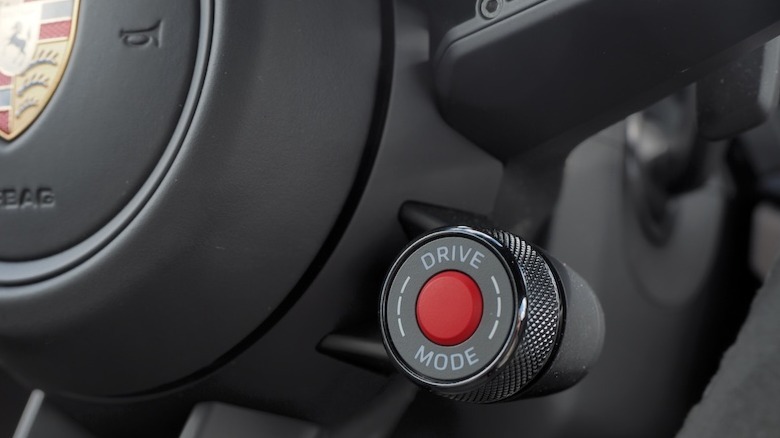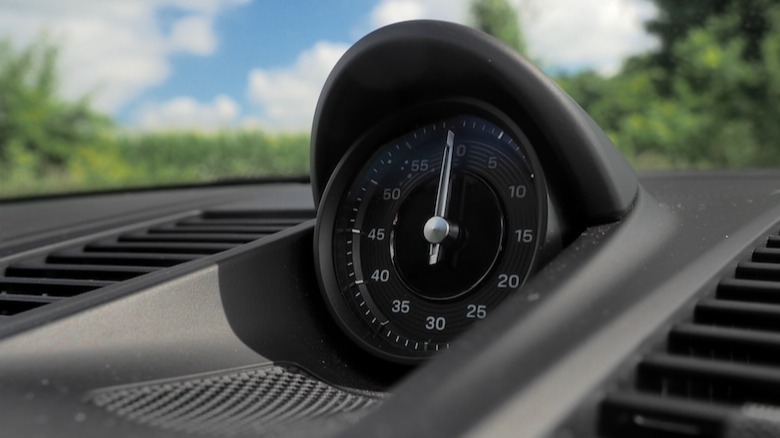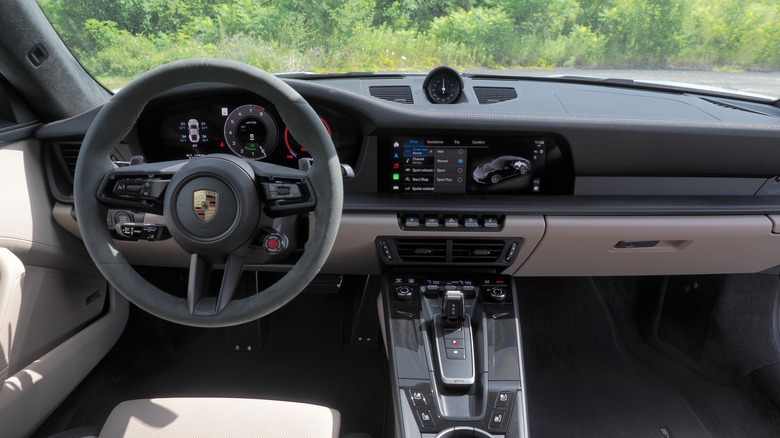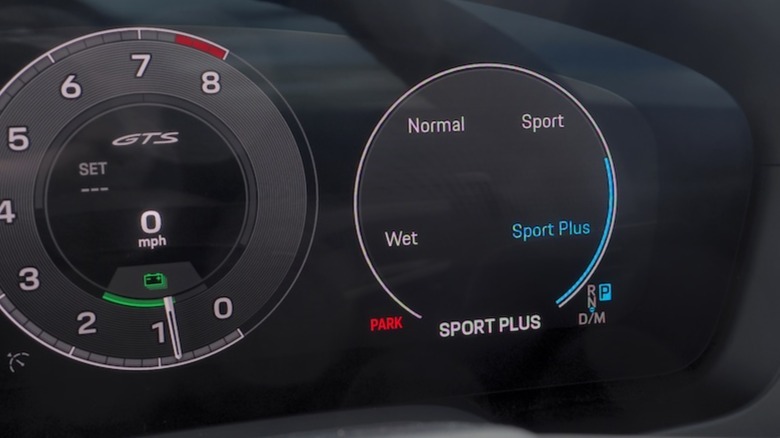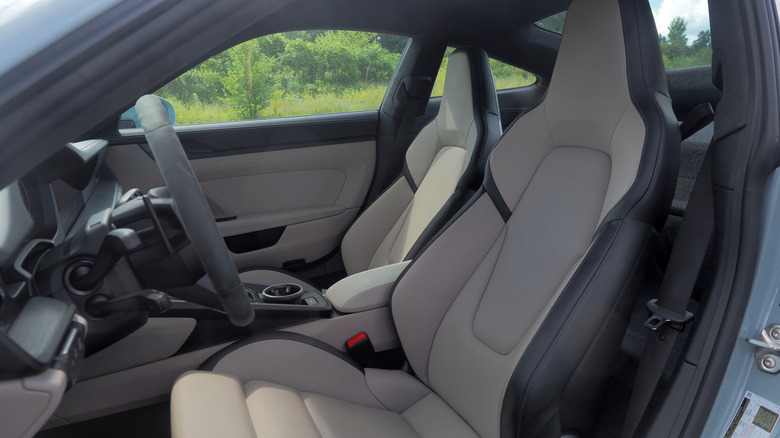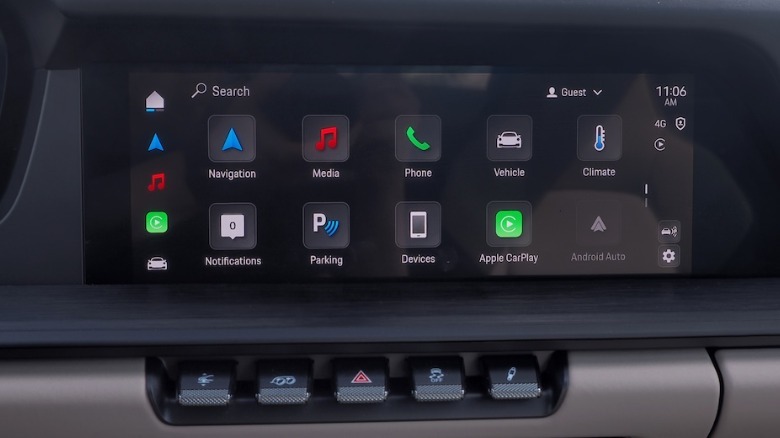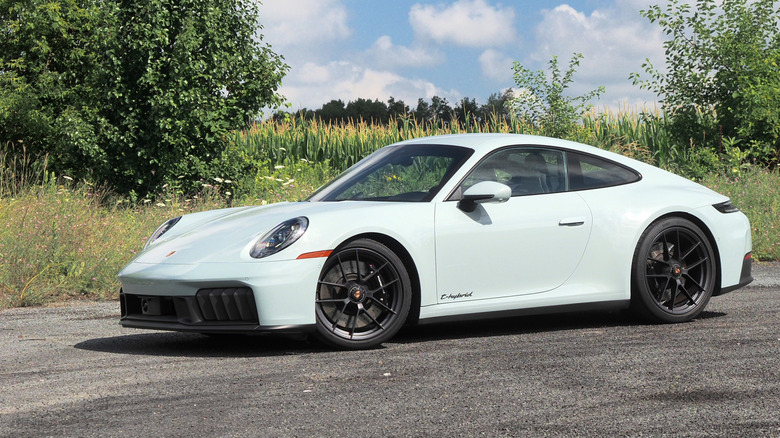Sorry, Hybrid Haters, Porsche's 2025 911 Carrera GTS Gamble Paid Off Incredibly
You can't exactly accuse Porsche of chasing change for its own sake. Few automakers have a product quite as recognizable — and as storied — as the 911, and few owner groups are quite as vocal when it comes to expressing their feelings about their beloved cars. For the 911 to go in any way electric, then, you have to think that Porsche took nothing for granted.
In a way, that's ironic, because actually Porsche has been cranking out excellent, high-performance hybrid and full EV models for some years, now. The Taycan still provides the benchmark for what a performance luxury electric sedan (or pseudo-wagon) should deliver; the new Macan electric is a bold (and some might say risky) evolution of Porsche's best-selling model; and if the Panamera E-Hybrid is eclipsed in its own line-up, that's only because the Panamera GTS is so darn good.
Even the 718 is going electric, with full EV versions of the Cayman and Boxster waiting in the wings. For the 2025 911 Carrera GTS, though, the time still isn't quite right to oust internal combustion altogether.
Family style for a brand new drivetrain
Instead, the familiar styling wraps a brand new — and intriguing — drivetrain, which Porsche dubs T-Hybrid. On the one hand, there's a new 3.6-liter inline-six gas engine (you don't need to be a 911 zealot to already know it's slung out the back of the car). It's equipped with an electrically-assisted turbocharger that spools up far faster, and so is more responsive, than the belt-driven dual-turbo system on the old car.
Then there's a permanently excited synchronous motor, which Porsche has integrated into the eight-speed dual-clutch PDK transmission. Both electric motors are powered from a 1.9 kWh 400V battery; the turbocharger motor can also work in reverse, generating up to around 11 kW of power to recharge that battery.
The result is a system total of 532 horsepower and 449 lb-ft of torque; that's 59 hp and 29 lb-ft more than the outgoing 911 GTS. It's also heavier than the old car, though — at 3,536 pounds for the rear-wheel drive coupe — Porsche claims it's a moderate increase of 103 pounds. What you had for lunch (and whether you cough up for the more expensive carbon fiber options, like the lightweight sports seats) might make more of a difference.
More power, sure, but it's how it arrives that's key
"Bigger" is only part of the story — and dare I say a minor part, at that — when it comes to power increases. Just like the 2025 911 Carrera GTS' 194 mph top speed is impressive, but hardly makes a practical difference outside of the track (or the autobahn). As with any electrified car, what you notice more day to day is the immediacy that a battery-and-motor combo can bring.
In this case, you're getting 368 lb-ft of the total torque — more than 80% — when the engine is only at 1,500 rpm. Meanwhile, the 0-60 mph time is trimmed to a claimed 2.9 seconds (down from the 3.2 seconds Porsche claimed for the old GTS in rear-wheel-drive, PDK form). In practice, the Germans are being conservative in their timings.
Fascinatingly, though, stabbing the start button doesn't instantly launch you into face-melting hybridized madness. Only the exceedingly firm suspension — stiff even in its softest setting — gives away the GTS' sporting ambitions. Otherwise, like most other 911 models, daily driving is a cinch, the T-Hybrid system interjecting squirts of electric power for a smooth but contained experience behind the wheel.
Fast, just like a GTS ought to be
In fact, I preferred Sport mode for daily use, if only for the slightly more eager pickup (look, I only had a week in the GTS' company, okay?) and swifter grins. It's Sport Plus mode, though, where things get truly interesting.
Notching the drive mode wheel around — or thumbing its red center, unlocking maximum performance for a 20-second blast — smashes any real distinction between gas and electric contributions. The GTS hurls itself forward with violent efficiency, not just fast but with the constituent parts of the T-Hybrid system collaborating seamlessly. Sure, the 8-speed slaps its way through the cogs, and the bark and whine of the gas engine and its twin tailpipes right behind you is a constant reminder that pace is most precious, but that's everything you'd expect from this breed of 911. The two motors only assist there.
If your fear was a disconnect between ICE and EV, as we've seen some sporting hybrids struggle with, don't worry about it. If you were concerned that the extra weight might spoil things, fret not.
It doesn't feel like a hybrid - it feels like a 911
The balance here is sublime: if you can notice the added pounds, you should probably be on Porsche's R&D payroll. The GTS' steering is direct and communicative, and this is an easy car to place and be precise with. Rear axle steering is now standard, which probably helps, but what's key is you don't notice it. Nothing stands out, or demands special attention: it just works.
If you've driven a recent 911 — preferably a GTS, but honestly, any Carrera will probably do — then this hybrid 2025 flavor will feel eminently familiar. Faster, sure, and more urgent when you apply a leaden right foot, but the focus and certainty of the car is everything Porsche aficionados have grown to love over the years.
It shifts the GTS nameplate purposefully and unavoidably into the performance-first space of the Carrera line-up, too. No sacrifices and no compromises. If you want to amble, or avoid road noise, pick another 911; you might be willing to give up on a few tenths of a second to sixty in favor of rowing your own gears, but the new GTS won't go along with that.
Farewell, stick shift, we'll miss you
That intentionality carries over to the cabin where, again, long-time 911 fans won't feel out of place. There's a sizable central touchscreen, and a fully digital gauge cluster, but you still get plenty of dedicated physical controls. Porsche's infotainment system supports wireless smartphone projection and is generally easy to navigate. You'll spend more time working your way through the options list for the many, many leather combinations and finishes, that range from the earnestly sober through to outlandishly (and expensively) garish.
It'd be unfair not to note what you miss, with this 992.2 generation car. The most obvious loss is the old GTS' manual: as fascinated as I am, as to how Porsche's clever engineers could integrate an electric motor into a stick shift, I can't really disagree that — for now — the six-speed had to go.
You don't get rear seats in the GTS coupe as standard, either, though Porsche will add them back in as a no-cost option. Similarly, for no extra cash, the automaker will swap out the GTS' stiffer anti-roll bars for those of the 911 Carrera S. The result is a softer ride and a 10mm increase in ride height.
2025 Porsche 911 Carrera GTS verdict
There is something brashly confident about Porsche choosing the GTS to launch its electrified 911 strategy. It would've been safer, you could argue, to have picked a slightly less visceral, less performance-centric model: something, had the T-Hybrid system proved not entirely compelling, which would stand less chance of muddying the car's enduring legacy. Instead, Porsche staked its flag, and the gamble paid off.
Sure, you can mourn the (excellent, engaging, lovable) manual transmission that's now no longer an option. Your lower back can bemoan the punishingly stiff suspension, too. And the price has trickled up, along with the technology: the $164,900 starting price for this (the cheapest) GTS climbed to near-$183k, with destination and a small smattering of extras. Figure on about $8k more if you want all-wheel drive.
Debating the "best" 911 is a surefire route to either a lively after-dinner conversation or to hating your fellow man. Better, perhaps, to rate the 911 models which have been game-changers, true innovators, as Porsche walks its careful line between evolution and nostalgia. One day, this clever T-Hybrid electrification will likely find its way into every 911, but for now the 2025 911 Carrera GTS gets to be known as a particularly special car among a line-up of special cars.
